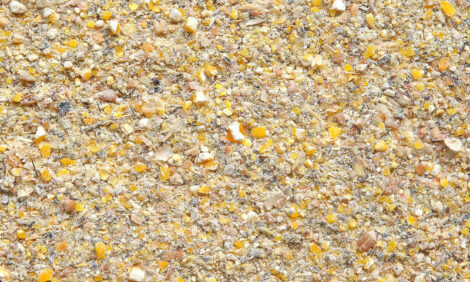



Progress on Salmonella Vaccine for Poultry, Humans
US - North Carolina State University professors are looking to reduce the threat of Salmonella, which infects 1.2 million people a year.Salmonella has been a subject of caution but instead of brushing off the pathogen, microbiology professor Hosni Hassan has embraced the microbe for a career in research, according to a report in NC State University's Technician Online.
Dr Hassan is developing a Salmonella vaccine that aims to make poultry and eggs safe for human consumption and to prevent foodborne diseases.
Up to this point, he has worked to make a weakened, non-pathogenic strand of Salmonella and his next step is to develop this as a vaccine to test on humans.
He explained: "It could possibly be used in a preventive pill for food poisoning. It can be something people take before traveling, especially to countries having water contamination and high instances of food-borne illnesses. This vaccine could be used as a precaution against diseases like traveller's diarrhoea."
Kelly Sexton, senior licensing associate at the Office of Technology Transfer of the National Institute of Health, is spearheading the commercialisation of this vaccine. This department works on the entrepreneurial aspects of technologies developed at the University. According to Sexton, OTT acts as the collaborative link between academia and industry to make the benefits of significant inventions accessible to the public.
According to Dr Sexton, companies have asked for sufficient results on poultry before they can work on granting permission for clinical trials on humans. Meanwhile, she has been working on bringing this vaccine into the agricultural pharmaceutical space and the veterinary animal market and getting their feedback.
Dr Sexton said: "I have been interacting with Hassan since he submitted the invention disclosure for this vaccine in 2006. We filed the US patent application for this at the same time. I have been in touch with companies since then to get their feedback, and contacted the Biotech Center to request a grant which would help him generate the data needed. The funding from this technology enhancement grant will be used by Hassan in his lab to work on the results demanded by industry."
The grant's $50,000 is funding the testing of the vaccine on chickens and their eggs.
Mary Mendoza, a technician working in Dr Hassan's lab, explained: "As part of our experiments, we prepare a known concentration of the vaccine from live bacteria, and feed it orally to the chickens when they are as young as one or two days old. At certain time points, their blood or parts of their gut are tested for the vaccine, whose concentration will come down if it is successful. The next part is to give known strains of Salmonella orally to the chickens and observe if it affects them,"
All this is done in a special facility designed especially for this purpose, with the correct temperatures and sanitation maintained as required.
In parallel, they are also working on inoculating chicken eggs and seeing if the embryo survives an injection of salmonella, and whether it has the expected immunity on hatching, according to Dr Hassan.
Once Dr Sexton obtains sufficient results from the trials, she said she would relay the information to companies to go for the next step in its commercialisation.
Sh added that there are other technologies being sorted through the tech program at NC State, which consists of teams of technology students paired with students from the MBA programme on aspects of technologies and their possible marketing opportunities.
"The end result could be anything from a successful commercial technology to even a start-up company," Dr Sexton said.








